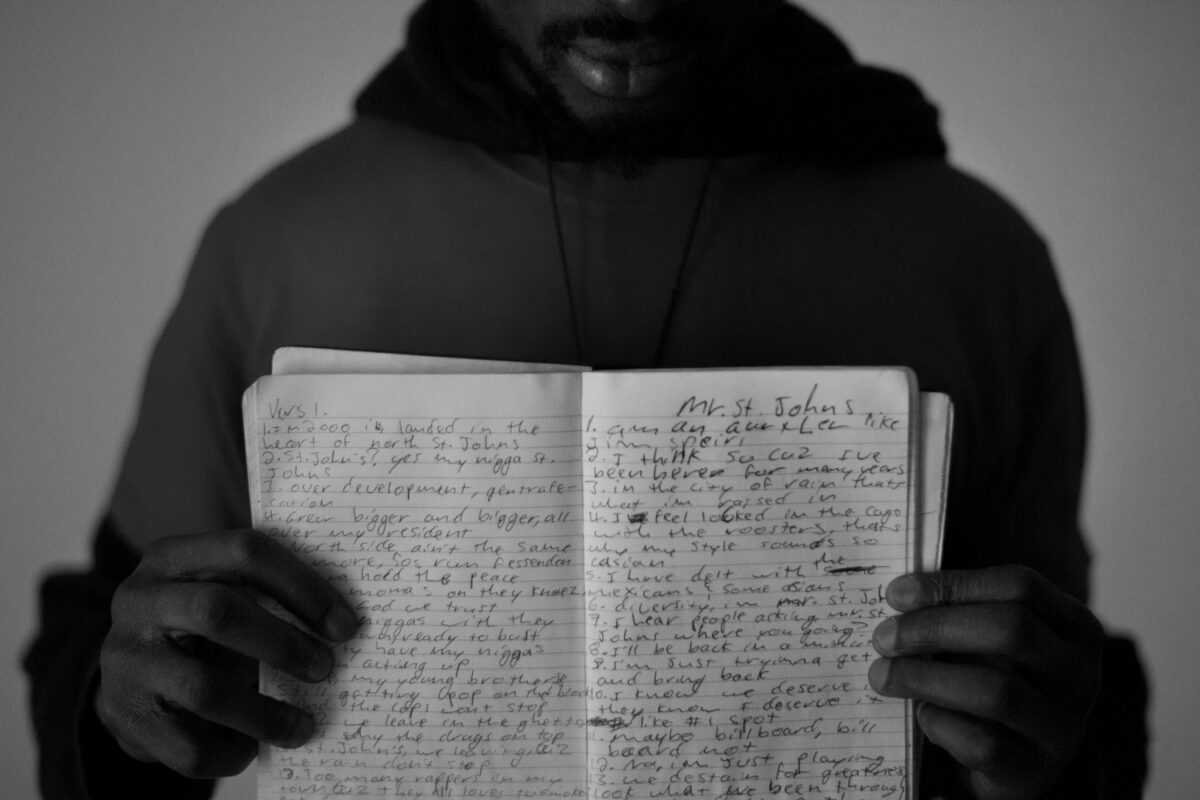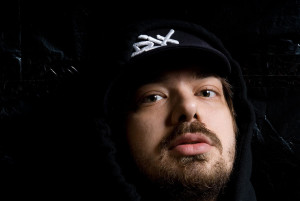Hey there. Do you like rap? I do too! Let’s talk about it. You don’t? Well, let’s talk about it anyway.
I’d like to offer some of my favorite rappers that showcase literary merit–either through depth of lyrical topics, metaphors, or genre-challenging style–in hopes of offering you some interesting new music to enjoy, whether you’re a fan of rap or not. I’ll also offer a rating for how much I enjoy their music, regardless of literary technique, and a rating for how well I think they show merit in their writing.
Kool A.D. (aka “Mulatto Franz Kafka”)
Kool was originally an English student trying to be a novelist. He was also a previous member of the group Das Racist, which was mostly two college kids rapping about pizza and shenanigans–with the occasional thought-provoking line about metaphysics. The duo split up though, and now they have solo careers as Heems (who largely still raps about pizza and shenanigans) and Kool A.D. (who focuses more on intricate rhyme schemes and thought-provoking wordplay). Kool actively pushes boundaries on rap through his music by questioning many tropes rappers seem to use without questioning–some examples being his tendency to say random celebrity names in his music as commentary on pop, his repeated reference to himself as the “best rapper in the world”, and the fact that he worked a riddle into the lyrics of one of his songs. These are all techniques beyond the regular status quo of hip-hop, and something that’s definitely deserving of a nod to being of literary value, in my book.
Personal Rating: A+
Literary Merit: A
From his track “Open Letter“:
Listen to the beat, it’s way more complex than
You might want to give it credit for
A lot of y’all lettuce green you need to edit more
And listen back and think about the reasons that you said it for
And understand that all language is metaphorYoung culture worker, the role reverser
The holy churcher, the folding furniture
The golden purse herder, the hearse hurdler
The turf surfer, A.D. that’s adios to a lot of you haters
Ladies love the cool lottery vapors
But the only Ls I take is two tobacco leaf papers
Mediate truths like a lot of newspapers
Aesop Rock (previously from The Weathermen)
He’s been around for quite a while, much longer than Kool, and you’ve probably at least heard of him before. Aesop’s perhaps best represented by an analytic study performed on which rappers had the most extensive vocabulary. He literally was off the chart, and afterwards the study’s originator tested him against Shakespeare and Moby Dick on the same sample of words, to find that he surpassed them both as well. His lyrics are often extremely opaque and jarring, in part because of his huge vocabulary and often archaic word choices, and his voice is a nasal kind of loud that you’ll just have to fully experience to understand why it works so well. As far as indie rappers go, Aesop is one of the most widely listened to and it’s certainly not a mistake that that’s the case. His lyrics touch on such topics as classism, the acrid pollution of New York, and what seems to me to be commentary on nihilism (though that could just be the sway of personal interpretation due to opaque lyrics). Either way, his lyricism and style possess a very gritty form of beauty that are unique to the rap game, even in the underground subgenre.
Personal Rating: A-
Literary Merit: B+
From his newer track “Bug Zapper“:
The first step is a doozy, it’s roulette with a mood ring
The birth of an old slang, the death of a new speak
A permanent post-game is littered with bridge trolls
Skirting the copay,divvy the death toll
Innumerable codenames, alerted and mobile
Familiar rising, and furnacing cold piles
Resilient style kings, impossibly tantrum
Wandering wild things,obelisk phantoms
Vince Staples
Vince is from the notoriously dangerous Inglewood, California, and reflects often in his lyrics about how his upbringing there has impacted him personally. His music often features a style typical to rap music, using trap-like beats and syncopated rapping, but he has a lyrical depth and knack for storytelling that’s unmatched by many of his contemporaries. When I first heard some of his music, I thought it was generally okay, but nothing special. He used to do a lot of tracks with the skateboard rap/shenanigan crew Odd Future, who have little to show for their short-lasting fame. Vince has since diverged from their style quite a bit, and his most recent album, Summertime ’06, really hammers home the darker aspects of his upbringing and dealing with racism in America. Although the themes of his lyrics and instrumentals don’t challenge the genre quite in the same way as Kool or Aesop, Vince’s dark form of realism packs a really powerful and sinister punch, and his unique voice really drew me in.
Personal Rating: B+
Literary Merit: B+
From his track “Nate“:
As a kid all I wanted was to kill a man
Be like my daddy’s friends, hopping out that minivan
Chrome ’38s spinning like a ceiling fan
Crying on my momma’s phone swearing he a different man
Talking to me monotone, hardly ever coming home
Knew he was the villain never been a fan of SupermanSmoking in the crib, hiding dip inside of soda cans
Black bandana on his arm, needle in his hand
Momma trying to wake him up, young so I ain’t understand
Why she wouldn’t let my daddy sleep, used to see him stand
What They Offer
In my opinion, each of these rappers demonstrate literary merit through some element of their different styles. Kool A.D. is more or less a rapper by an English student for English students. He uses overelaborate puns and rhyme schemes while occasionally incorporating philosophy and wryly critiquing hip-hop at the same time–essentially making him the only deconstructionist rap artist I’ve ever heard.
Aesop Rock is perhaps best enjoyed by people who enjoy opaque poetry, but although his meanings are hard to grasp they certainly are worth apprehending. And a lot of what he talks about is very relevant to an academic’s view of society, especially his Marxist overtones in his album Labor Days.
Finally, Vince Staples makes use of perhaps the most traditional form of rap there is–aspects of his real life experiences and childhood–while crafting each of his songs to potently showcase some of the really dark things he’s seen in his lifetime. His often highly explicit lyrics are thus vital to his storytelling, and at the same time aesthetically demonstrate the rawness of his experiences for the listener.
I think each of these artists showcase a talent that is in some way canonical to the rap in general, even if the rappers themselves cannot be argued as such. Therefore, I think each of these artists contributes something worthwhile to rap’s progression as a genre as well as the writing world in general.



